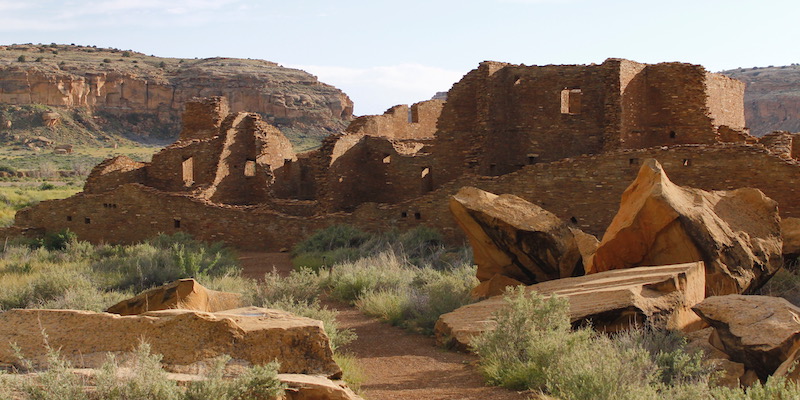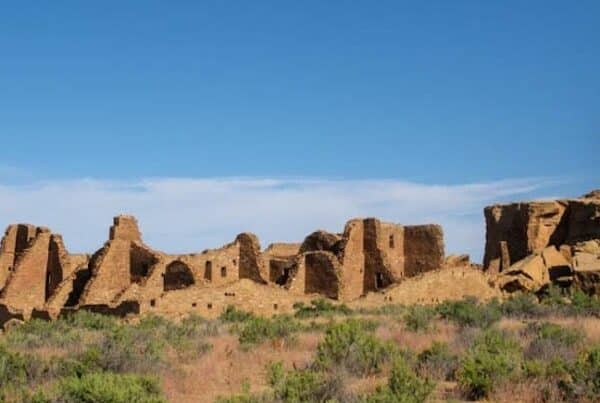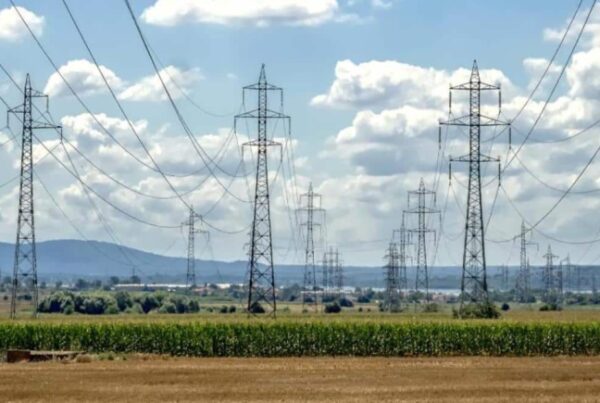We were thrilled to welcome members of Congress to Chaco to experience the incredible landscape, learn about the history, and hear from impacted community members firsthand. We are confident they now have a deeper understanding of the issues here and are hopeful that it will translate into greater protections for the region. We will continue to use all the tools we have to advocate for more meaningful tribal consultations and protections the region and people deserve.
Full press release with links below. You can learn more about our Chaco campaign here.
For Immediate Release
April 18, 2019
Recorded hearing video: http://bit.ly/2U6kCXy
Greater Chaco Coalition responds to Congressional Visit on Oil and Gas Impacts
House Natural Resources Committee Holds Field Hearing on
Protection of Air Quality and Sacred Sites
Santa Fe, NM: Members of the Congressional House Natural Resources Committee held a three-day trip in New Mexico from April 13 to 15 to learn more about the negative impacts of oil and gas drilling on sacred sites and air quality, especially in the Greater Chaco region of northwest New Mexico.
Over the three days, Natural Resource Committee Chair Raul Grijalva (D-AZ), Subcommittee on Energy and Minerals Chair Alan Lowenthal (D-CA), Subcommittee on National Parks, Forests, and Public Lands Chair Deb Haaland (D-NM), and Assistant House Speaker Ben Ray Luján (D-NM) held an environmental-justice roundtable, visited oil and gas sites in Greater Chaco using FLIR-camera imaging, heard from local Navajo community leadership, toured the park, and held an extensive field committee hearing at the New Mexico Capitol on April 15 on oil and gas development’s impacts on air pollution and sacred sites. New Mexico Governor Michelle Lujan Grisham, Pueblo of Santa Clara Governor and All Pueblo Council of Governors Vice Chair Michal Chavarria, Pueblo of Acoma Governor Brian Vallo, Navajo Nation Vice President Myron Lizer, Resources and Development Committee Chair and Navajo Nation Council Delegate Rickie Nez, Twin Pines resident in Counselor Kendra Pinto, Rancher Don Schreiber, and others gave compelling testimony on the varied impacts that industrialized oil and gas development is having on Tribal Nations, cultural resources, public health and safety, and the environment.
During her testimony, Kendra Pinto asked legislators what they experienced while touring oil and gas sites in the region. Members expressed amazement at seeing the amount of invisible emissions, made visible by FLIR imaging, coming from well sites and their proximity to homes and livestock, felt a reverence when walking on sacred grounds, and commented on having more knowledge to be able to act in Congress.
The field hearing followed the April 9 re-introduction of the Chaco Cultural Heritage Protection Act of 2019, introduced by the entire New Mexico congressional delegation — Senators Tom Udall and Martin Heinrich, Congressman Ben Ray Lujan and Congresswomen Deb Haaland and Xochitl Torres Small— which proposes to withdraw federal minerals from new oil and gas leasing within an approximate 10-mile buffer around Chaco Culture National Historical Park. The new version of the bill incorporated some of the recommendations made by the Greater Chaco Coalition, including acknowledgement of the Greater Chaco Landscape as extending far beyond the proposed protection zone, and the call for further additional environmental health and ethnographic studies, as well as a new provision that allows for the retirement of non-producing oil and gas leases within the region. The new version of the bill also affirms the need for meaningful Tribal consultation and was introduced alongside State Land Commissioner Stephanie Garcia Richard’s anticipated executive order removing State Trust Lands from new oil and gas drilling in the Greater Chaco area.
Members of the Greater Chaco coalition also met with congressional representatives and provided presentations on the impacts of the Bureau of Land Management’s oil and gas leasing practices in the region and in the nation, including ongoing inadequate environmental analysis, lack of tribal consultation, lack of cultural-resource analysis, shortened and reduced public comment periods, and increasing public outrage.
Additional Statements:
“As a member of the 24th Navajo Nation Council, I am more than pleased to have had the opportunity to have met with the Delegation in such an informal setting. The congressional delegation convening was a great first step in the protection of the Greater Chaco landscape. I believe that our message of community protection and need to have the federal government do more to protect not only the “cultural resources” but to protect the Diné people living in the Greater Chaco landscape was not only heard, but felt. We are committed to work with the congressional delegation in their goals of protecting the people and the landscape.” – Daniel Tso, Navajo Nation Council Delegate, detso49@yahoo.com
“We have requested for the congressional delegation to come out and visit the sites, and finally it happened. You all have seen, felt and smelled the air in our community. It’s not so good. I really hope the information you gathered from the visit be put to use and not forgotten. That is all we ask. Thank you for your visit.” – Samuel Sage, Community Services Coordinator, Counselor Chapter House, (575) 568-4311
“Diné C.A.R.E. is grateful to the House Committee on Natural Resources for their time and attention to hearing testimony on the impacts of oil and gas development on air pollution and sacred sites; we are hopeful that these discussions with community stakeholders will continue to foster a proactive working relationship that will ensure protections for our land, water, air and sacred sites for generations to come.” – Carol Davis, Coordinator, Diné C.A.R.E., dinecare88@gmail.com
“We whole-heartedly give love and gratitude for the dedicated work of Sens. Udall and Heinrich, as well as Reps. Haaland, Torres Small, and Luján, to protect our sacred Greater Chaco and all seen and unseen lives of a multi-spatial existence. The Chaco Cultural Heritage Protection Act of 2019 is a start to honor ancient wisdom keeping which has interconnectivity beyond present day earthly human’s ability to comprehend. Life’s existence for all, needs our public support. Protecting Greater Chaco in a loving 20-mile spherical reimagining would be ultimate protection. We will do everything in our multifaceted spirit-rooted means to gain sustainability for all past, present, and future life givers.” – Elder Kathy Sanchez and Beata Tsosie-Pena, Tewa Women United’s Environmental Health and Justice Program, (505) 747-3259 ext.203, Info@tewawomenunited.org
“Unfettered and industrialized oil and gas development is currently besieging Greater Chaco and vast swaths of the American West. We’re thankful for leadership from New Mexico’s delegation and the House Natural Resources Committee for taking the necessary first steps toward landscape-level protection and meaningful reform of the federal oil and gas program so that it may meet the rights and needs of the culture, communities, and climate of the Greater Chaco Landscape and beyond.” – Rebecca Sobel, Senior Climate and Energy Campaigner, WildEarth Guardians, rsobel@wildearthguardians.org. Click here to see WildEarth Guardians’ presentation to House Natural Resource Committee members.
“This visit brought many northern New Mexico residents together. The experts asked to testify clarified major issues for the public. They highlighted the common ground that public health and the open air and water are being toxified and oil and gas companies must be a big part of solving this growing crisis.” – Teresa Seamster, Counselor Health Impact Assessment Committee
“We deeply appreciate the hard work of Sens. Udall and Heinrich, as well as Reps. Haaland, Torres Small, and Luján, to protect Greater Chaco and its living communities. The Chaco Cultural Heritage Protection Act of 2019 is a legacy-building opportunity and an essential facet of a comprehensive suite of actions needed to safeguard New Mexico’s intertwined natural and cultural heritage. Public support for protecting Greater Chaco is overwhelming, and we will do everything in our power to sustain this legislation’s momentum. – Erik Schlenker-Goodrich, Executive Director, Western Environmental Law Center, (575) 613-4197, eriksg@westernlaw.org
“We are truly appreciative of the House Natural Resources Committee for taking the time to visit the Greater Chaco Landscape and to hear first-hand from affected communities about the impacts of oil and gas development on cultural resources, air quality, and livelihoods. We hope this field visit will translate into comprehensive protective measures for the Greater Chaco Landscape, such as the passage of the groundbreaking Chaco Cultural Heritage Protection Act of 2019 and other necessary actions to safeguard this unique cultural landscape for current and future generations.” – Mike Eisenfeld, Energy and Climate Program Manager, San Juan Citizens Alliance, mike@sanjuancitizens.org
“We’re thankful to the House Natural Resources Committee for their visit to New Mexico; for seeing first-hand, the multiple impacts oil and gas development is inflicting on communities, air quality, and the Greater Chaco landscape. This is a substantial step toward addressing the region’s multifaceted oil and gas problem. We’re also thankful to our New Mexico delegation and their continued involvement and commitment to protecting Chaco Culture National Historical Park. Until expanded oil and gas development and leasing are truly addressed, we’ll continue to advocate for broader community and environmental protections.” – Miya King-Flaherty, Our Wild New Mexico Organizer, Sierra Club Rio Grande Chapter, miya.king-flaherty@sierraclub.org
“Food & Water Watch New Mexico appreciates the field hearing by the subcommittee of the House Natural Resources Committee. Escaped methane is indeed an issue that is part of the greater problem of the extraction of fossil fuels. We understand the fervor in controlling this dangerous threat to the atmosphere. However, our main concern is the continued permitting of new wells and the further commitment to drilling and fracking infrastructure. We would like to see a moratorium on any new permits until we can be assured of the safety of all residents. A four-year moratorium was introduced in the recent state legislative session and we look to leadership to take concrete steps in transitioning away from the extraction and burning of fossil fuels to 100% renewables.” – Eleanor Bravo, Southwest Director, Food & Water Watch/Food & Water Action ebravo@fwwatch.org
“350 New Mexico thanks the House Natural Resources Committee for their Santa Fe field hearing following their visit to Chaco Canyon. The testimony on what they witnessed at Chaco through the FLIR infrared camera – uncontrolled methane and benzene leakage and venting – confirms what tribal members have been saying for years, that their lives are being impacted by toxic pollution from fracking. We support the recent U.S. legislation to extend a 10-mile no-fracking zone around Chaco Canyon as the very least that must be done to protect this sacred site. But further we call for a four-year moratorium on any new fracking or re-fracked wells in New Mexico, to give time to assess climate, air, water and health impacts, establish meaningful monitoring and develop regulation and enforcement to protect our people, water and air.” – Tom Solomon, Co-Director, 350 New Mexico, (505) 328-0619, tasolomon6@gmail.com
“Thank you to the congressional delegation for taking the time to come to New Mexico to learn first-hand the impacts that the Greater Chaco region is suffering from the frack attack. Noise, flaring, bad roads, polluted air (methane flaring visibly through the lens of an infrared camera), minimal well pad setbacks from residences – nothing is more powerful than seeing all this for yourself. Now we hope there will be action in Washington, D.C. to right these environmental injustices.” – Evalyn Bemis, Freelance Photojournalist
“Our six generation ranch was no longer a viable resource as a result of oil and gas activity. We owned state, private, and federal lands and few of any of the regulations designed to protect the other resources were ever enforced by the Bureau of Land Management. Not all land is multi-use land, and the damage done cannot be undone for generations to come. Protect our special places.” – Tweeti Blancett, Northwest New Mexico Rancher
“Thank you to the congressional delegation for visiting Chaco Canyon and holding hearings regarding safeguarding the park. As the world turns its attention, resources, and unbounded support to the preservation of Notre Dame Cathedral, so I hope the US Congress will dedicate the same to the proposed legislation to preserve a ten mile oil and gas free zone around our national treasure and World Heritage Site, Chaco Culture National Historical Park. We must protect what is precious, we must not sell that which is priceless, and we must respect our ancestors’ expressions of culture and civilization. I strongly support this legislation.” – Wendy Volkmann, Concerned New Mexico Resident



